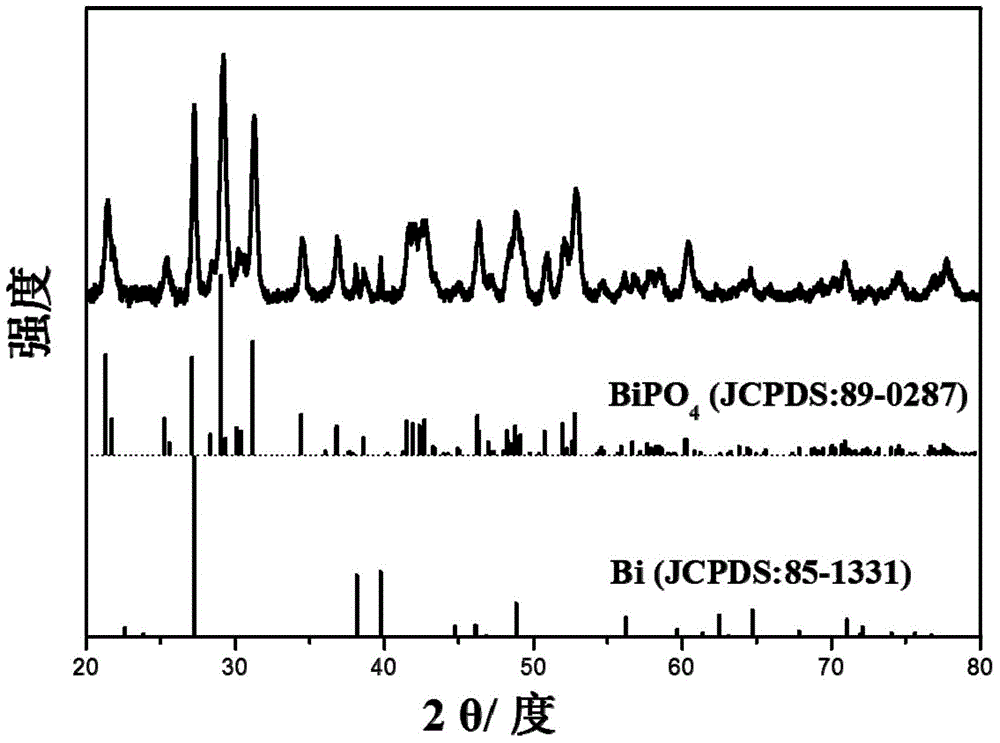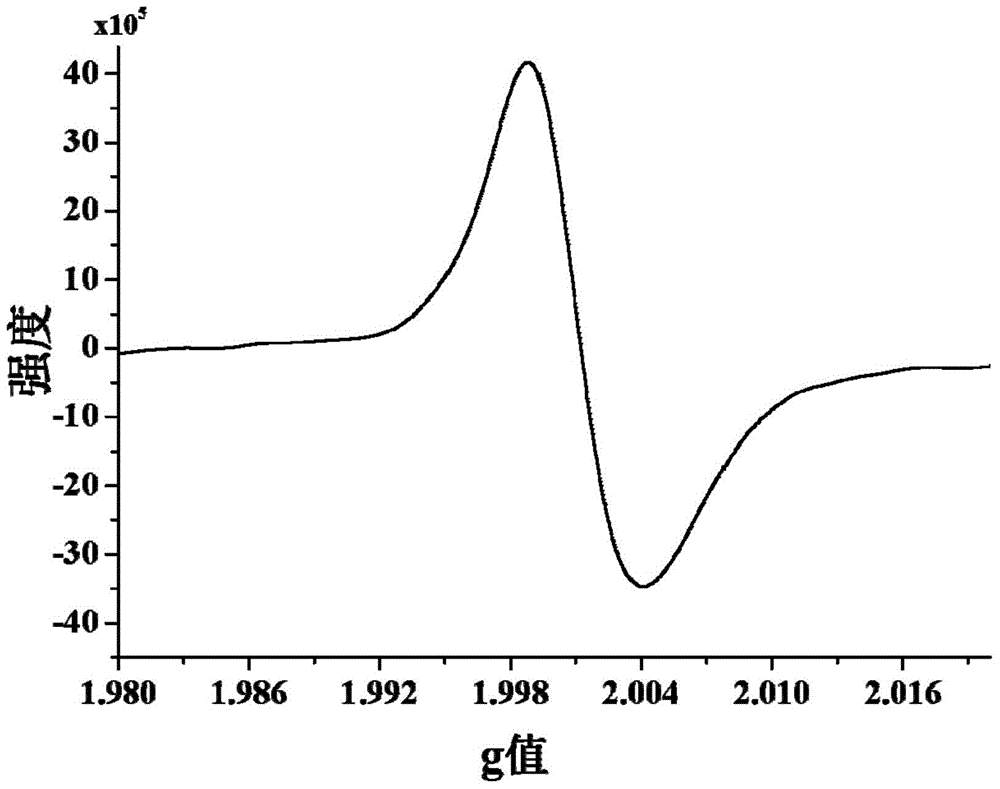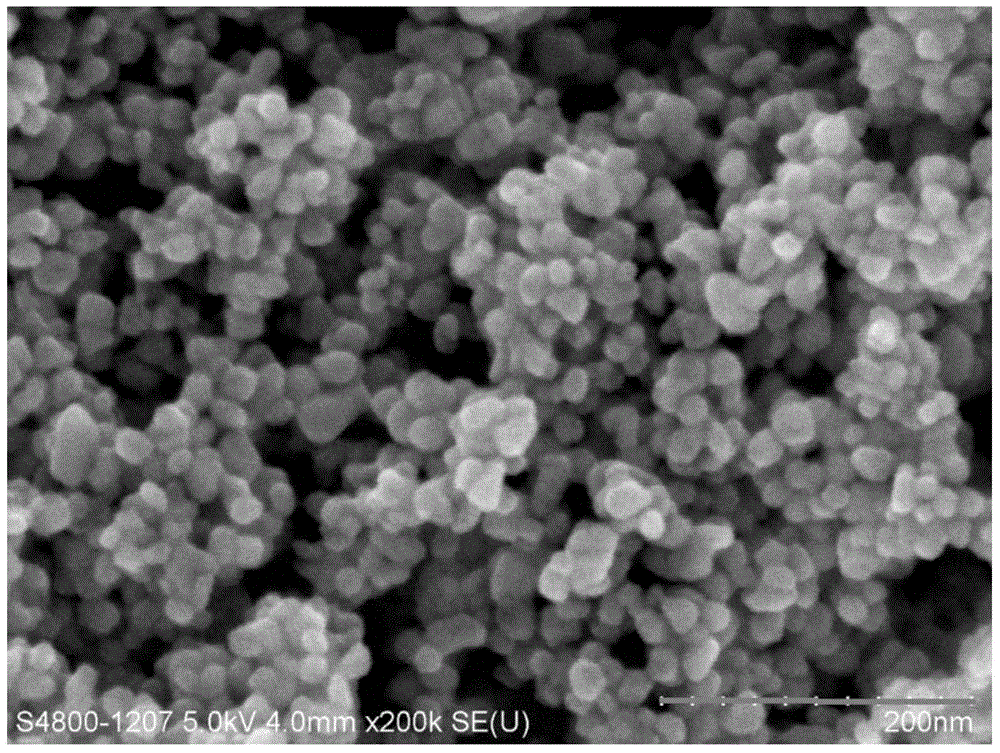Preparing method of simple substance bismuth/bismuth compound nanocomposite with oxygen vacancies
A technology for nanocomposite materials and bismuth compounds is applied in the field of one-step synthesis of elemental bismuth/bismuth compound nanocomposite materials containing oxygen vacancies, which can solve the problems of lack of universality, environmental pollution and high cost, and achieve large-scale production and reduce Production costs, avoid uncontrollable effects
- Summary
- Abstract
- Description
- Claims
- Application Information
AI Technical Summary
Problems solved by technology
Method used
Image
Examples
Embodiment 1
[0026] Embodiment 1 The preparation method of the elemental bismuth / bismuth phosphate nanocomposite material containing oxygen vacancies comprises the following steps:
[0027] Take 0.1mmol of bismuth nitrate pentahydrate, add 30mL of ethylene glycol, ultrasonically dissolve, then add 0.1mmol of sodium tripolyphosphate to the above solution; the reaction solution is placed in a stainless steel autoclave lined with polytetrafluoroethylene. React at 180°C for 12 hours; remove residual solutes and solvents by centrifugal washing, dry the product at 60°C for 12 hours, and obtain elemental bismuth / bismuth phosphate nanocomposites containing oxygen vacancies after cooling.
Embodiment 2
[0028] Embodiment 2 The preparation method of the elemental bismuth / bismuth phosphate nanocomposite material containing oxygen vacancies, comprising the following steps:
[0029] Take 0.33mmol of bismuth nitrate pentahydrate, add 30mL of ethylene glycol, ultrasonically dissolve, then add 0.33mmol of sodium tripolyphosphate to the above solution; the reaction solution is placed in a stainless steel autoclave lined with polytetrafluoroethylene. React at 180°C for 12 hours; remove residual solutes and solvents by centrifugal washing, dry the product at 60°C for 12 hours, and obtain elemental bismuth / bismuth phosphate nanocomposites containing oxygen vacancies after cooling.
Embodiment 3
[0030] Embodiment 3 The preparation method of the elemental bismuth / bismuth phosphate nanocomposite material containing oxygen vacancies, comprising the following steps:
[0031] Take 0.33mmol of bismuth nitrate pentahydrate, add 30mL of ethylene glycol, ultrasonically dissolve, then add 0.33mmol of sodium tripolyphosphate to the above solution; the reaction solution is placed in a stainless steel autoclave lined with polytetrafluoroethylene. React at 180°C for 24 hours; remove residual solutes and solvents by centrifugal washing, dry the product at 60°C for 12 hours, and obtain elemental bismuth / bismuth phosphate nanocomposites containing oxygen vacancies after cooling.
PUM
 Login to View More
Login to View More Abstract
Description
Claims
Application Information
 Login to View More
Login to View More - R&D
- Intellectual Property
- Life Sciences
- Materials
- Tech Scout
- Unparalleled Data Quality
- Higher Quality Content
- 60% Fewer Hallucinations
Browse by: Latest US Patents, China's latest patents, Technical Efficacy Thesaurus, Application Domain, Technology Topic, Popular Technical Reports.
© 2025 PatSnap. All rights reserved.Legal|Privacy policy|Modern Slavery Act Transparency Statement|Sitemap|About US| Contact US: help@patsnap.com



